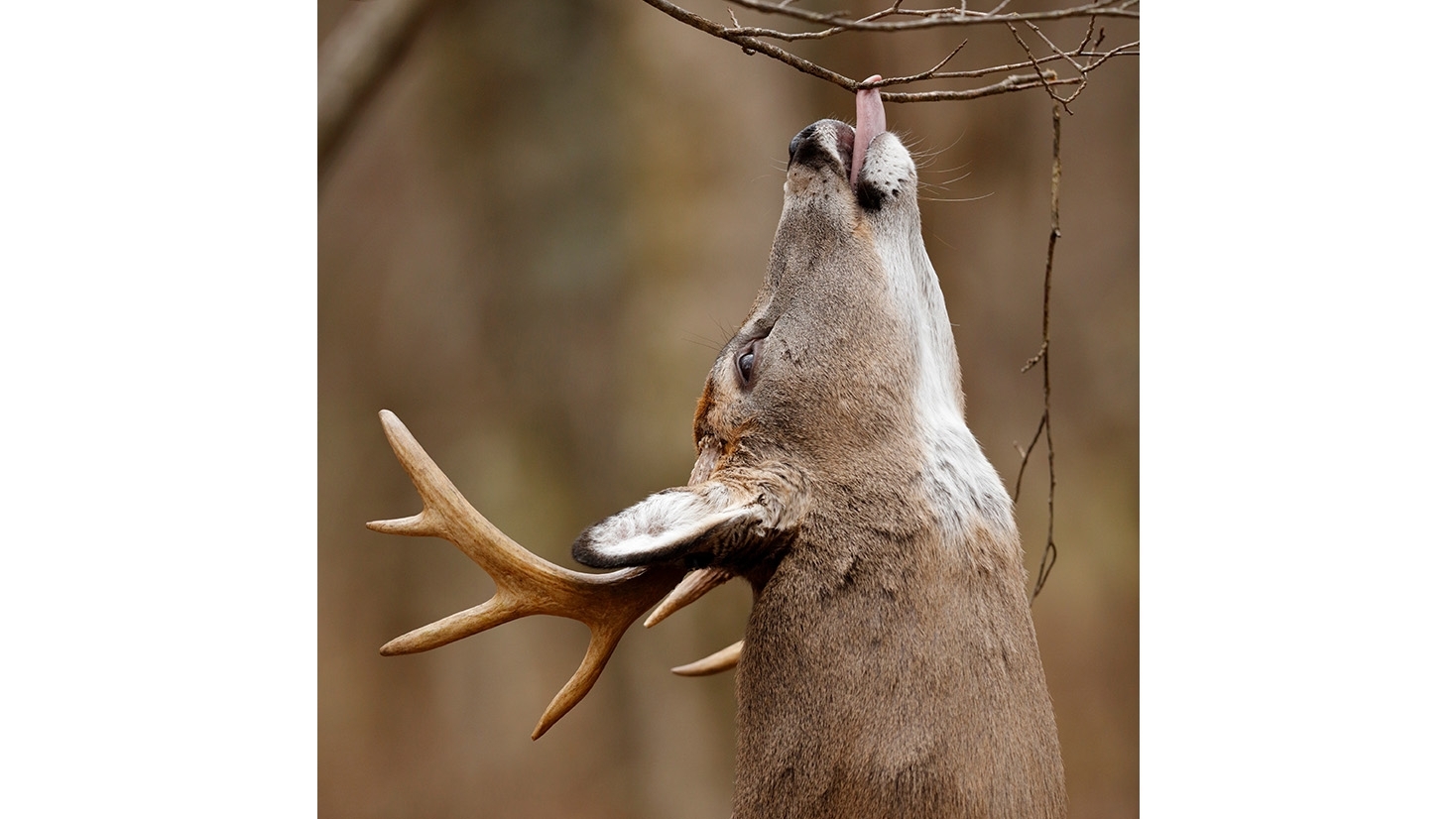NWRC Spotlight: Deer Scrapes and Chronic Wasting Disease Transmission

Chronic Wasting Disease (CWD) is spread by infectious prions shed through bodily fluids, such as feces, urine, blood, and saliva. These prions may remain infectious in the environment for years. CWD not only spreads when deer or other cervids come in close contact with each other, but also indirectly from the environment during feeding or other activities in shared spaces. One likely pathway of indirect CWD transmission in white-tailed deer is through their scraping behavior.
What are scrapes?
Scrapes are created primarily by bucks during the breeding season. Scrapes are communication signposts marked and visited by bucks and does. Scrapes are created when a deer uses its front hooves to clear a circular area on the ground of debris and duff (usually next to a tree). It then urinates on the area and rubs its face on and licks a low-hanging branch, depositing scented secretions from glands. Additional deer will visit the scrape and perform similar behaviors, potentially encountering or disseminating CWD prions. Scrapes represent an understudied part of deer social behavior that may impact the spread of CWD.
Building on What We Know
NWRC, Southern Illinois University, and the University of Wisconsin-Stevens Point researchers recorded visits and behaviors by deer at scrapes throughout DeSoto National Wildlife Refuge in Iowa. More than 2,000 interactions by 169 unique, identifiable males and 75 females were recorded. Adult males performed the most scrape-related behaviors and spent the most time at scrapes, especially smelling the overhanging branch, smelling the scrape, licking /grasping the overhanging branch, and scraping. Researchers used this and other data to conduct a social network analysis to describe indirect contact patterns among deer at scrapes. Results showed scrapes may be effective targets for management to reduce indirect contact and potential spread of CWD prions among deer.
For more information, please contact NWRC@usda.gov.

